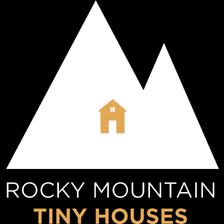We do not offer financing in house. This is one of the big “L’s” that hold a lot of people back from buying a Tiny House: Loans. (The other two are Land and Laws, if you are curious). When it comes to Tiny Houses, cash is definitely king. If you build it yourself and can find a lot of salvaged material, chances are good you’ll get by. This requires you to have a lot of time though, as well as expertise and good tools. Some people feel more comfortable hiring a professional Tiny House builder. A fraction of such people might have $30-70k in cash they can put up for such a house. What about those of you who don’t? Fear not, options are available. Always remember too, where there is a will, there is a way. Let’s discuss some possible means of financing a Tiny House.
1. Friends/Family-You might know someone with cash that would be willing to loan you the money on a 3 to 5 year note with an interest rate that will make it worth their while, yet, not put huge undue burden on you, maybe like 8-10%. I am no loan expert, but here is some quick math. Let’s say you want to buy a Tiny House for $35k. Hopefully you can put up $5k of your own cash. No matter where you get a loan, the lender is going to want you to have some skin in the game. That leaves a balance of $30k. At 9% over three years, your total interest would be around $4300. That is a decent return on investment for the lender, and is a bit high for you, but it’s not ridiculous. Want to see ridiculous? Just look at how much interest you would pay for a 30 year mortgage on a note only worth $100k at 6% ($115,838.19 in total interest, in case you are curious)
2. Unsecured bank loan. These are hard to get and you have to have exceptional credit, but for some it might be an option. It would be similar to getting a used car loan or a personal loan to take a vacation or pay some medical bills or who knows what else. Talk to your local bank and see if you qualify. Local credit unions tend to have higher success rates over the mega banks. A new lender we have talked to and can recommend is SoFi. Eligible borrowers can get unsecured loans for 2-7 years with fixed and variable rates between 5-14%. An application to this lender will not ding your credit since they perform a “soft” pull.
3. Secured bank loan- Do you own anything else free and clear that would count as collateral for the amount borrowed? Things like your car, a boat, motorcycle, RV, bikes, other? Again, talk to your local bank.
4. RV loan- Some Tiny House builders have become RVIA certified as a means to sell more units utilizing RV loans. We began the process of RVIA certification, but then withdrew based on a letter that RVIA sent me expressing their views against representing a product that was going to be used as full time living quarters, not temporarily as an RV is intended for. You can read more about this here. So, if you are working with a lender that requires a RVIA seal to get an RV loan, I cannot help you in this regard. A few builders got their foot in the door with RVIA prior to the letter being released, and to be honest with you, I’m not sure what the dynamics are there, but these builders are still operating offering RVIA certification. If this is your only option, I’m happy to refer you such a builder based on your geographic location. Some states will still allow you to register your tiny house as a RV instead of a utility trailer at the DMV. Sometimes. coupled with a Vehicle Identification Number (VIN) that all new trailers come with, this will be an acceptable security interest for the lender to loan against. Be aware that yearly RV registration/taxes is much higher than registering your tiny house as a “utility” trailer”
5. Lending Club is a peer to peer lending network offering unsecured loans to qualified borrowers. In the same category is also Prosper and One Main Financial
6. Springleaf Financial offers personal loans up to $25k for qualified borrowers. Some states are excluded.
7. Lightstream Financing, a division of national lending powerhouse Suntrust Bank has recently stepped up the the tiny house lending market. I have no experience or feedback with them yet, but worth a try if other options do no come through.
8. tinyhouseloans.com – This is a free ebook by Alex Pino, owner of tinyhousetalk.com. He covers some of the same ground I have covered here, but also touches on some other methods. I bit dated, but still worth a read.
